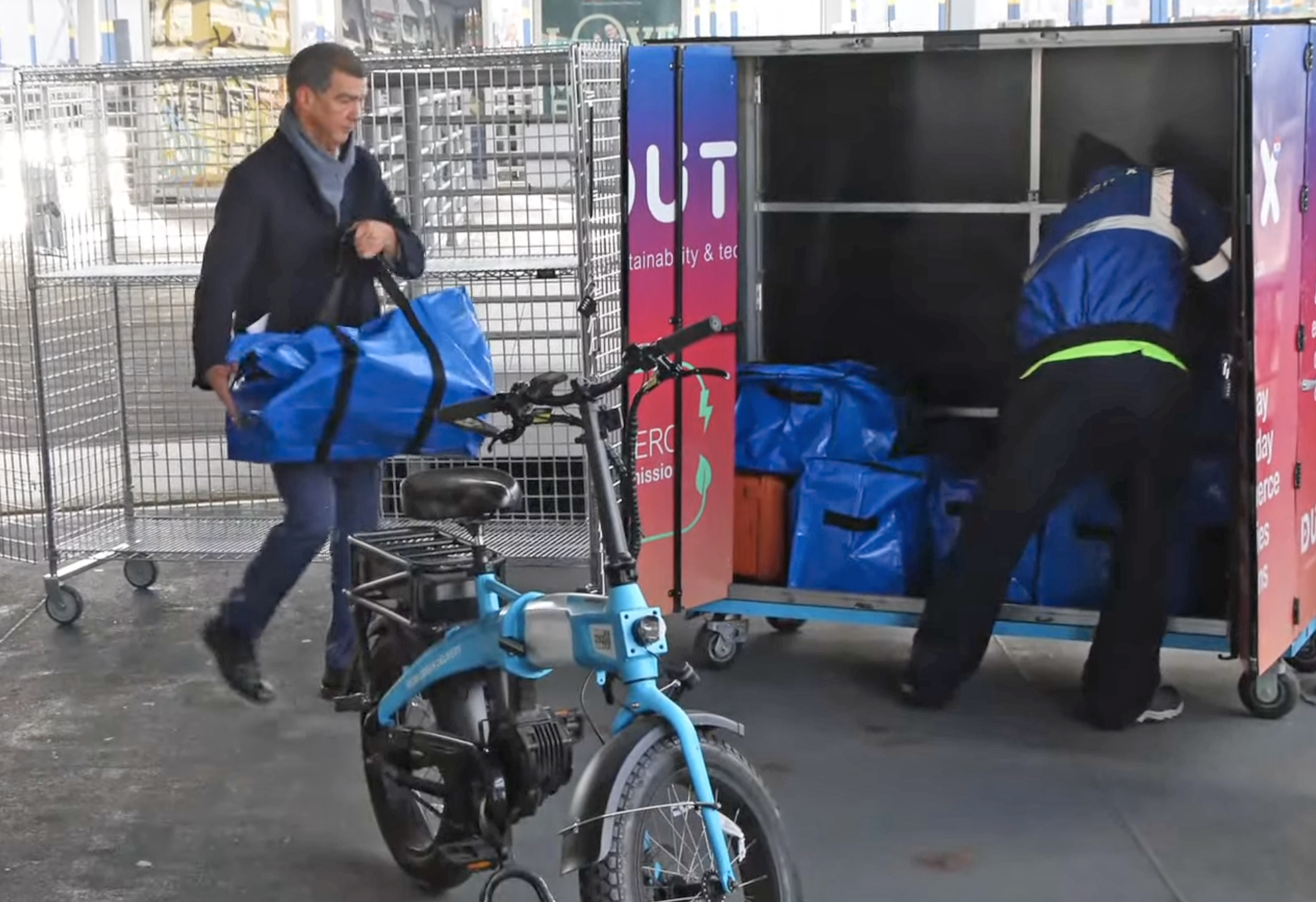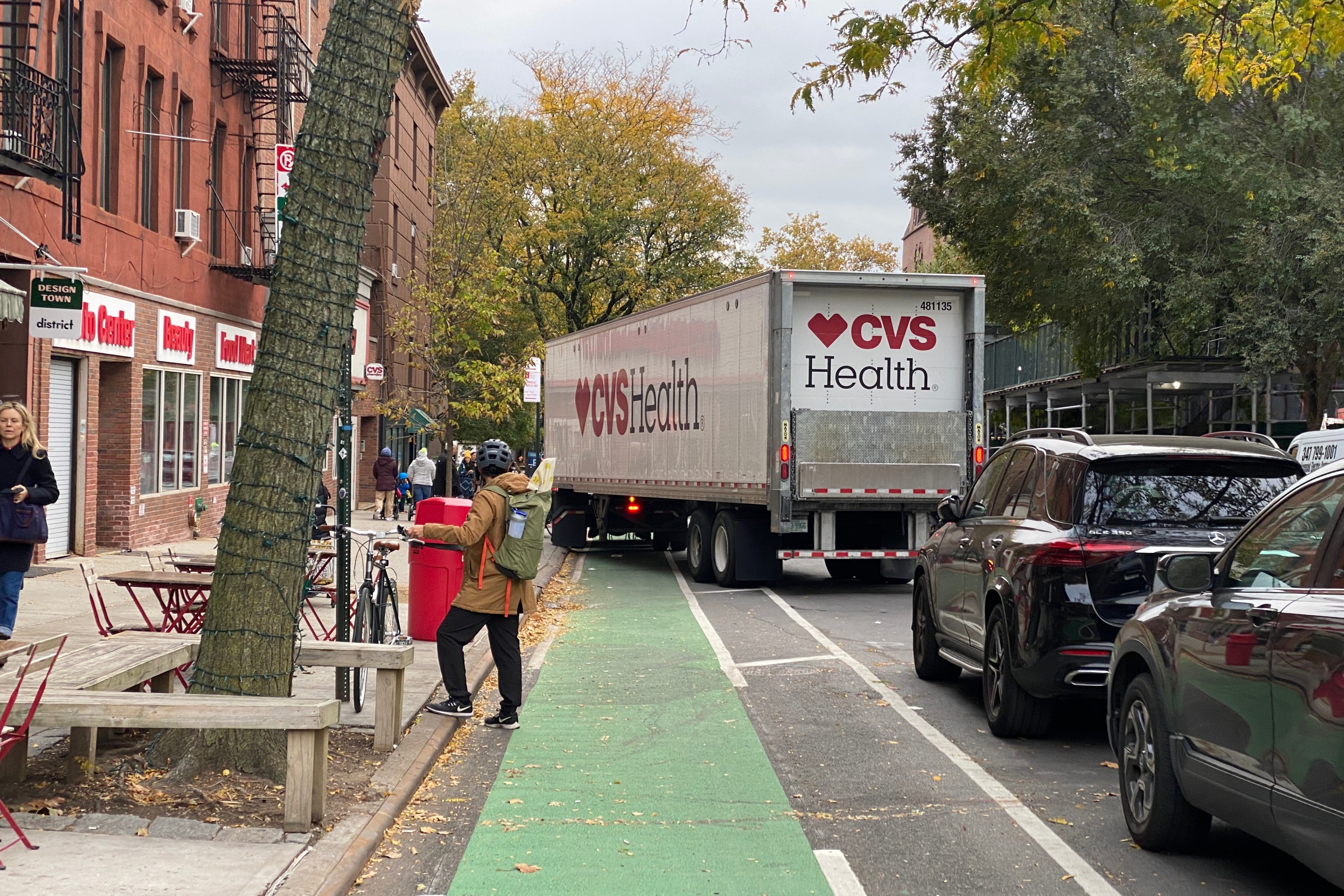After months of anticipation, Andrew Cuomo's Fix NYC panel is expected to release its final report today, and details started to leak last night. For the advocates who've been making the case for bold policy to fix New York's traffic dysfunction, it's a moment of vindication and relief: The governor is proposing a well-constructed congestion pricing plan that will make tangible reductions in car trips and relieve the city's worst traffic jams.
The report does present a range of options, as Cuomo said it would. Some are stronger than others and will be worth pushing for in the legislative fight ahead. But all the scenarios share the core traits of a legitimate congestion pricing plan. The question at this point is how hard the governor will work to enact the plan in Albany.
We'll post the full report once it's public. Here's what we know so far.
The cordon zone
All scenarios call for a toll on inbound private motor vehicle trips to Manhattan below 60th Street. Drivers who take the Brooklyn Bridge ramp directly to the FDR Drive or the Queensboro Bridge ramp to 62nd Street and don't enter the cordon zone would be exempt.
In addition, taxis, Ubers, and other for-hire vehicles would be subject to a surcharge for trips in the cordon zone. According to the Daily News, the for-hire surcharge would apply to trips in Manhattan below 96th Street.
Pricing
The report presents a range of prices for motor vehicle trips into the cordon zone, up to $11.52 for private cars -- the equivalent of a roundtrip using the MTA's tolled East River crossings -- and $25.34 for trucks, according to the Times. The for-hire vehicle surcharge ranges from $2 to $5.
Of note, the report does not call for the toll swap in the Move NY plan, which would reduce prices on outlying MTA crossings.
Peak hour tolling
The congestion fee would not be in effect at all times. When traffic is less intense, like on nights and weekends, drivers could enter the cordon zone for free. The report puts forward a menu of off-peak times when the fee would not apply.
Implementation timeline
The for-hire vehicle fees would be phased in first -- likely next year, according to Politico. The full cordon fee would be slated to go live in 2020 to allow for time to improve subway and bus service beforehand. The MTA will have to demonstrate some progress in improving subway reliability, and a major upgrade to bus service like systemwide all-door boarding would help absorb a shift from driving to transit.
The Times and Politico report that the panel will also recommend a rethinking of the city's parking placard system. (A significant share of placard holders car commute to the Manhattan CBD.)
There's a tough political fight ahead, starting in Albany and progressing to City Hall, where Mayor de Blasio has been digging in his heels against congestion pricing.
In the legislature, Senate Majority Leader John Flanagan has come out against congestion pricing, and while Assembly Speaker Carl Heastie says he's open to the idea, by and large the New York City Democrats in his caucus remain astoundingly out of touch with how their constituents get around and why congestion pricing will benefit them.
These are not insurmountable obstacles in the state legislature. If Cuomo wants to enact a congestion pricing plan, there's a path to do it. Support from the governor is the one indispensable ingredient in getting a congestion pricing plan through Albany, and for the first time in ages, that support is in place.






